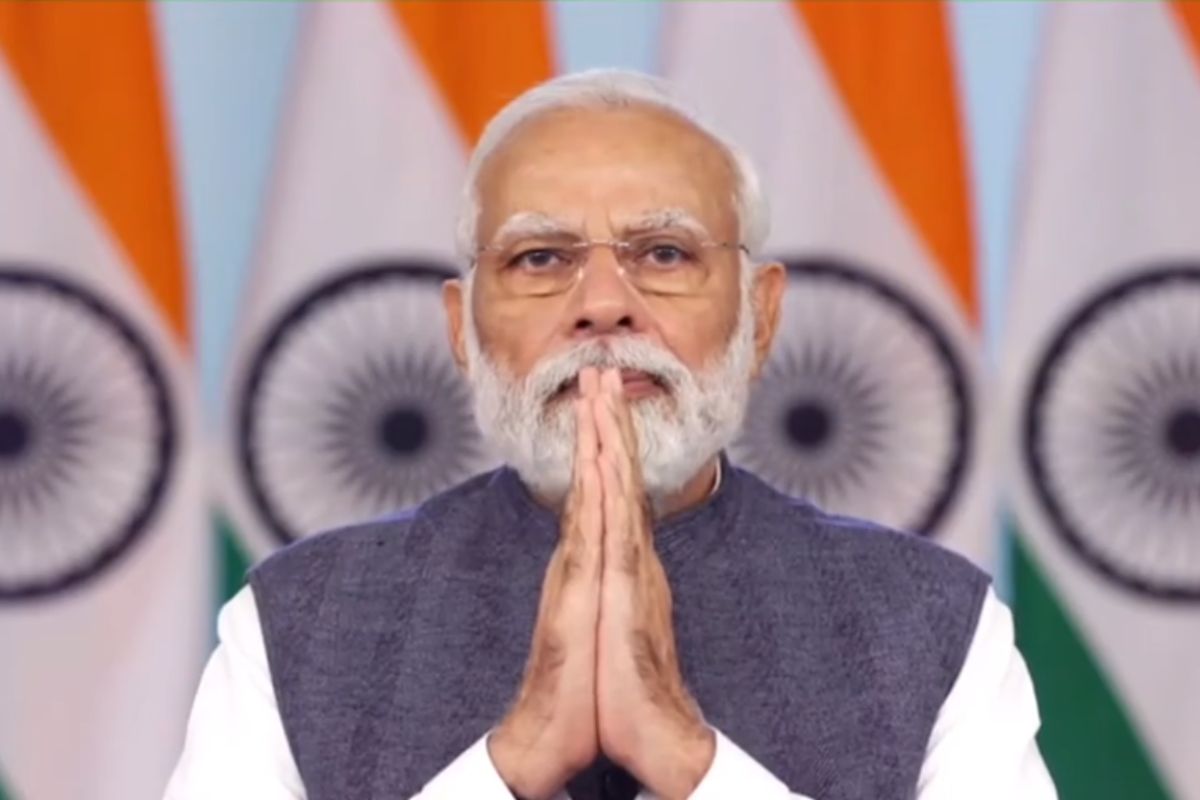LS polls: PM Modi to campaign in Gujarat today
Prime Minister Narendra Modi will address two public meetings in Gujarat's Banaskantha and Sabarkantha, respectively, on Wednesday.
In a closely connected world, the impact of disasters will not be just local, Modi contended.

(Photo: Twitter/@narendramodi)
Prime Minister Narendra Modi on Tuesday said disaster in one region can have a big impact on a completely different region and therefore, “our response has to be integrated, not isolated.”
In a video message to the 5th edition of the International Conference on Disaster Resilient Infrastructure (ICDRI)-2023 being held here, he said that in a closely connected world, the impact of disasters will not be just local.
“Recent disasters have reminded us of the scale of challenges we face,” he said. There were heat waves across India and Europe. Many island nations were harmed by earthquakes, cyclones and volcanoes. Earthquakes in Türkiye and Syria caused great loss of lives and property.
Advertisement
Congratulating the Coalition for Disaster Resilient Infrastructure (CDRI) on the conference, the prime minister said the CDRI arose from a global vision. In just a few years, over 40 countries have joined it, and even global institutions and domain experts are its members.
“Your work is becoming more relevant. There are great expectations from the CDRI,” he said, addressing heads of state, academics, business leaders and policy makers from all over the world at the conference.
During disasters, he said, “it is natural that our hearts go out to those who are suffering. Relief and rescue take priority and rightly so. Resilience is about how quickly systems can ensure the return of normal life.”
Resilience is built in the times between one disaster and another, he said. “Studying past disasters and learning lessons from them is the way. This is where the CDRI and this conference play a key role.”
Each nation and region faces disasters of different kinds. Societies evolve local knowledge related to infrastructure which can withstand disasters. While modernizing infrastructure, such knowledge needs to be used intelligently, the Prime Minister said.
In fact, modern technology with local insights can be great for building disaster resilient infrastructure, he said. If documented well, local knowledge may become global best practice, the Prime Minister said,
Referring to the CDRI’s theme of Delivering Resilient and Inclusive Infrastructure for the conference, he said infrastructure is not only about returns but also about reach and resilience.
Infrastructure must leave none behind and serve the people even during times of crisis. Further, a holistic view of infrastructure is needed. Social and digital infrastructure are as important as transport infrastructure, he said.
Some of the initiatives of the CDRI are already showing its inclusive intent, he said. The Infrastructure for Resilient Island States initiative or IRIS benefits many island nations. These islands may be small, but every human living in them matters to all.
Just last year, the Infrastructure Resilience Accelerator Fund was announced. This 50 million dollar fund has generated immense interest among developing nations. The commitment of financial resources is key to the success of initiatives, the prime minister said.
“This year, India is also bringing the world together through its G20 presidency. As the president of G20, we have already included the CDRI in many working groups,” Modi said.
“The solutions you explore here will receive attention at the highest levels of global policy-making. This is an opportunity for CDRI to contribute to infrastructure resilience, especially against climate risks and disasters,” he said.
Addressing the conference, Principal Secretary to the Prime Minister Dr P K Mishra said there is global momentum on resilience issues. It was time to move from describing the problem to finding solutions, and these could be found in modernising institutions, creating multi-disciplinary capacities and putting people at the centre, he said.
Advertisement